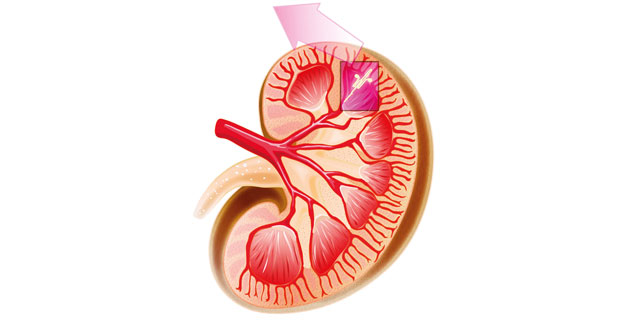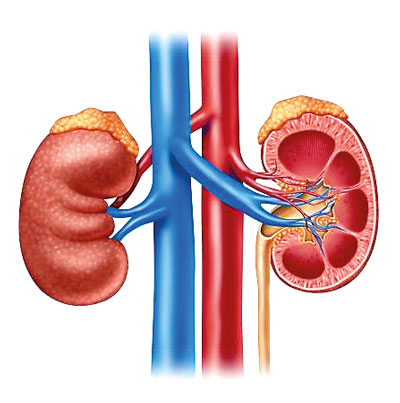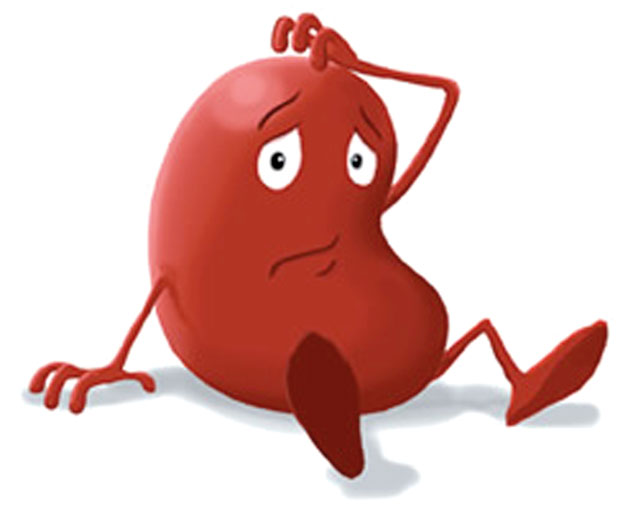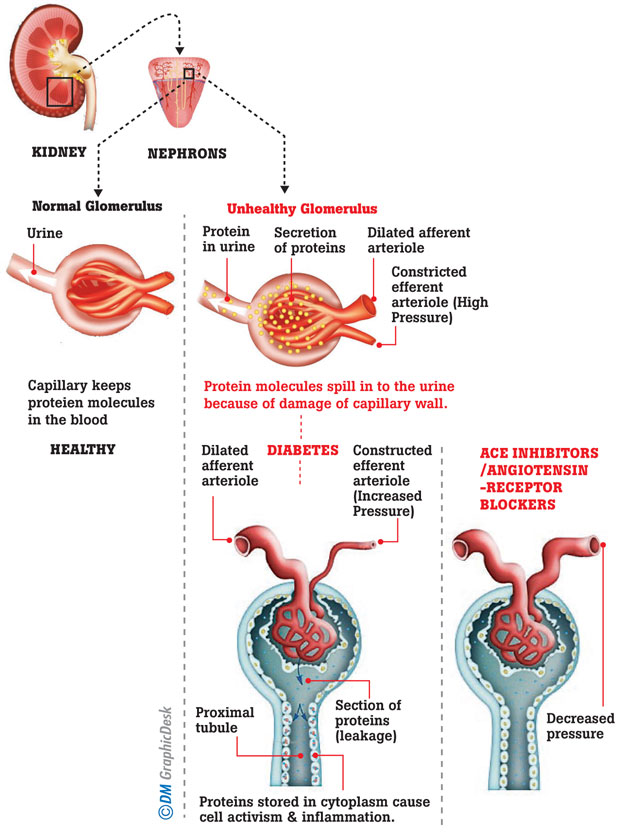02 Aug 2017 - 9075

 Diabetes Mellitus is an illness triggered by lack of insulin in the body or the body’s inability to use normal quantities of insulin, in accurate levels.
Diabetes Mellitus is an illness triggered by lack of insulin in the body or the body’s inability to use normal quantities of insulin, in accurate levels.
There are two major types of the disease known as Type 1 and Type 2. Type 1, also known as Juvenile onset Diabetes Mellitus or insulin-dependent diabetes mellitus, is known to be prevalent in higher incidences among children.
In this type of Diabetes, your pancreas doesn’t produce sufficient amounts of Insulin and therefore you will have to depend on life-long Insulin injections to maintain the optimal levels in the body.
Type 2 diabetes, also known as Adult onset Diabetes Mellitus, is the commonest one and usually affects people over 40. It’s also called non-insulin-dependent diabetes mellitus where your pancreas makes insulin, but the body fails in making use of it properly due to certain pathological defects in the uptake or metabolism. The high blood sugar level which would be the end result, can often be controlled by life style alterations and medication even though some patients might need Insulin. Unfortunately, the incidences of this type 2 diabetes are rapidly increasing among the population of Sri Lanka, possibly due to lack of awareness and various misbeliefs.
QHow do kidneys get affected by increased sugar levels in the blood?
This is a common question asked by most of our patients with Diabetes. To discuss on it, we thought of having our today’s Q & A session with Sri Jayewardenepura General Hospital Registrar in Internal Medicine Dr. Solith Senanayake.

“Insulin, manufactured by the pancreas, regulates the concentration of glucose in the blood. When the body lacks insulin, this will haphazardly result in high blood sugar levels, eventually, resulting in several unhealthy disease conditions in body organs, especially your kidneys, nerves and eyes. Kidneys play a vital role in your body so, it’s important to protect your kidneys from harmful consequences caused by Diabetes”, explained Dr. Senanayake.
“You might have heard about some diabetic patients who have become dialysis dependent with a poor quality of life and endless suffering, so that is surely not where you want to end up if you are a diabetic,” he affirmed.
The major function of kidneys in the body is to eliminate waste matter from the blood and return purified blood back to the body, thus maintaining the electrolyte imbalance. Diabetic nephropathy is one of the commonest complications of long term diabetes which can be prevented properly by following medical advice effectively.

“Diabetes is the commonest cause of kidney disease where even if the condition is controlled, already initiated pathology can result in chronic kidney disease and kidney failure” said Dr. Senanayake. But good control will always delay the progression of kidney disease.
“According to the latest data, 20-30% of people with diabetes are susceptible to kidney disease, even though, not all of them would develop in to aforementioned renal failure. Furthermore, it’s important to keep in mind that a person with diabetes is vulnerable to nephropathy regardless of the fact that they use insulin or not,” he further stated. Also, the incidence is high in patients who are having diabetes over a long period of time with other co-morbidities.
QHow does the process take place?
When your blood sugar levels are kept high for a long time, there will be 3 major changes taking place in the kidneys.
1. Increased production and uncontrolled Glycation of matrix proteins resulting in a rapid Mesangial expansion (augmentation of the extracellular matrix)
2. Thickening of the glomerular membrane
3. Intra-glomerular hypertension due to dilatation or ischaemic injury to the affected renal artery injury (due to hyaline thickening), causing glomerular sclerosis
In simpler terms, all these changes will alter the normal structure of your kidneys, thus resulting in a failure to maintain their optimal function.

QHow do you usually diagnose patients with Diabetic nephropathy?
“Don’t wait for the signs and symptoms to develop. The normal kidneys can function even with a 25% of its functioning capacity even without revealing any signs. Therefore, by the time you notice changes, more than 75% your kidneys would be non-functional,” Dr. Senanayake said.
QWhat are the symptoms of an affected patient?
Q How do you usually proceed with a patient suspected to be having the above features ?
After taking a thorough history about,
QIs there any treatment available for the disease?
Unfortunately, there is no ‘permanent’ cure for Diabetic Nephropathy even though Kidney transplantation, which is costly, can be used to save lives of patients in the End stage of renal disease. It’s also important to note that these various types of treatment used recklessly can become more antagonizing since there is a chance of a possible weakening of kidneys then leading to renal failure.

Therefore it’s important to remember that prevention, marks the most helpful method of therapy with a proper control of blood glucose levels and blood pressure.
Other available treatment
• Dialysis or non-natural kidney treatment
This is usually to prevent patients reaching, End-stage kidney failure where your kidneys cease to function. This advanced mechanism known as Dialysis contains the filtration of patient’s blood over a distinctive machine which will eliminate waste materials over time while stabilizing water and electrolyte levels.
• Kidney transplantation
A kidney obtained from a compatible donor can be transplanted. This is indicated in a special category of patients including young children and patients without any significant co-morbidities etc. But, the problem in our country is that this treatment isn’t readily available for patients apart from being quite expensive.
Myth breaker
Before concluding the interview, we asked Dr. Senanayake about some common ideas expressed regarding Diabetes related kidney disease, people tend to believe at present.
According to him, the beliefs are complete misconceptions and if you are one of these individuals who have doubts about any of them, it’s always better to seek the opinion of a qualified health care professional rather than relying on the opinion of people who are not professionals in the medical field.
14 Jan 2025 45 minute ago
14 Jan 2025 46 minute ago
14 Jan 2025 2 hours ago
14 Jan 2025 2 hours ago
14 Jan 2025 4 hours ago